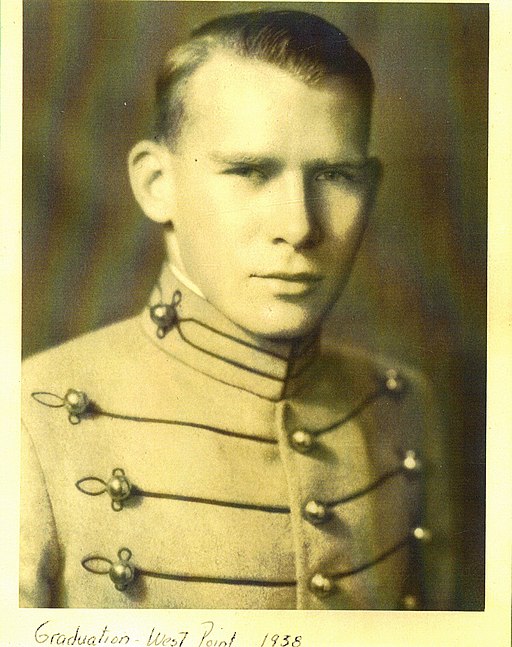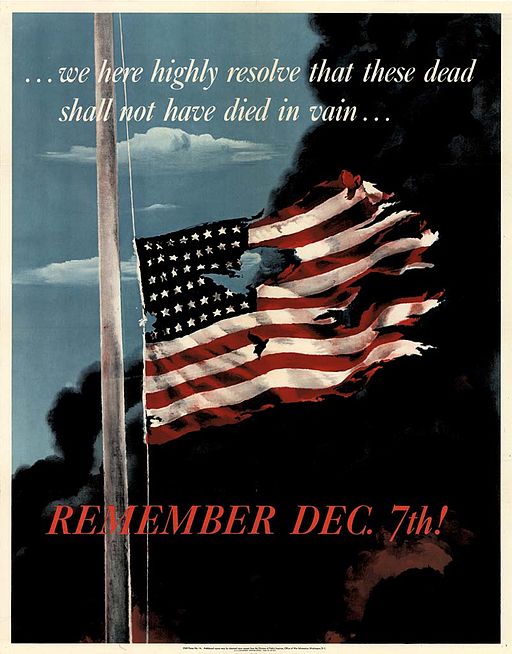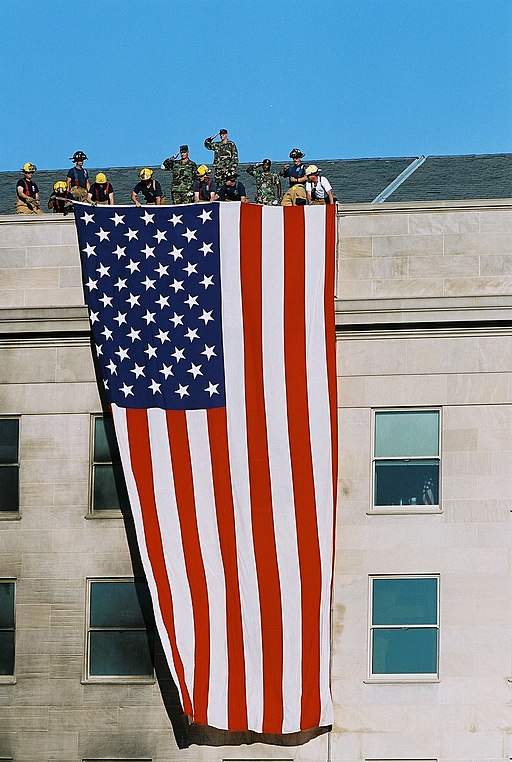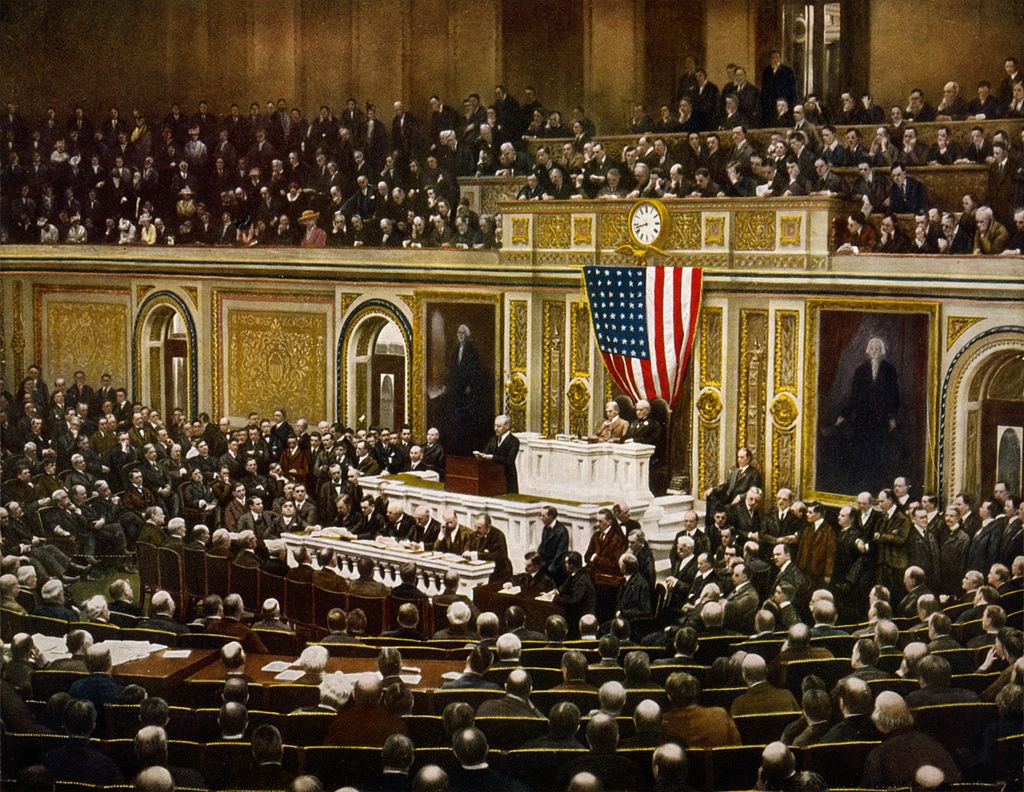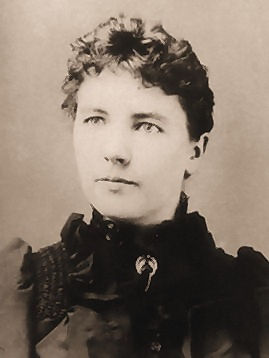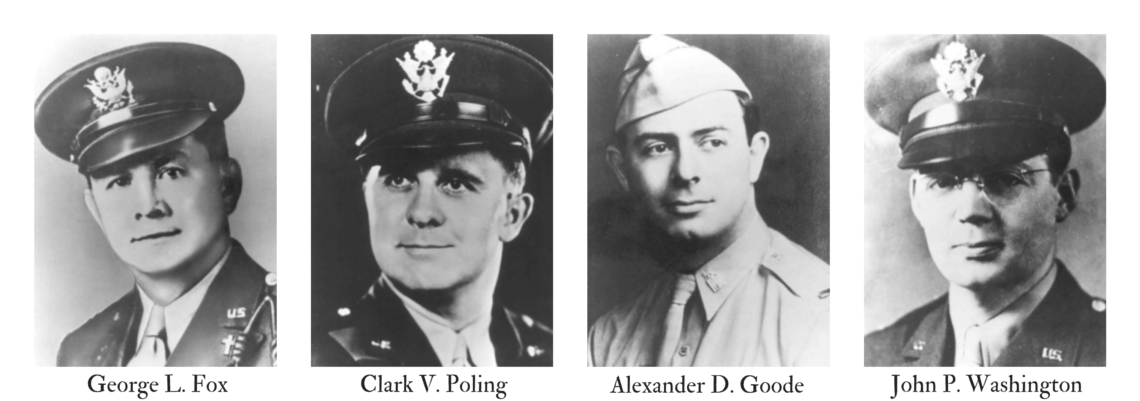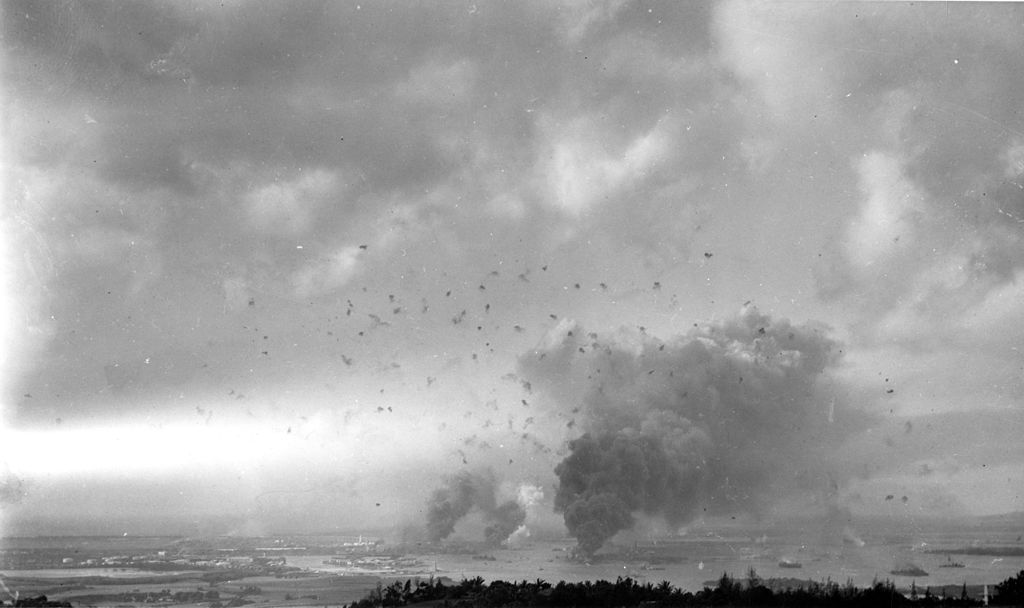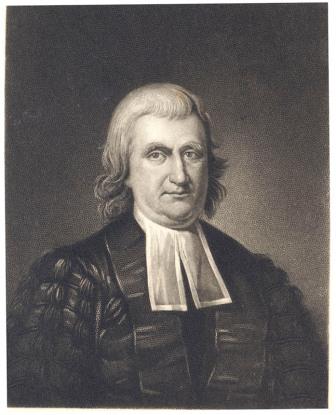-
D-Day Prayer
Seventy-eight years ago today, Lt. Col. Robert Lee Wolverton, commander of the American 3rd Battalion, 506th Parachute Infantry Regiment, 101st Airborne Division, assembled his men in preparation for their D-Day jump over Normandy. This is what he told them.
“Men, I am not a religious man and I don’t know your feelings in this matter, but I am going to ask you to pray with me for the success of the mission before us. And while we pray, let us get on our knees and not look down but up with faces raised to the sky so that we can see God and ask his blessing in what we are about to do:
God almighty, in a few short hours we will be in battle with the enemy.
We do not join battle afraid.
We do not ask favors or indulgence but ask that,
if You will, use us as Your instrument for the right and an aid in returning peace to the world.
We do not know or seek what our fate will be.We ask only this,
that if we must die,
that we die as men would die,
without complaining,
without pleading
and safe in the feeling that we have done our best for what we believed was right.Oh Lord, protect our loved ones
and be near us in the fire ahead
and with us now as we pray to you.”Wolverton then gave the command to “move out.” Not long after he and his men jumped, the 29-year-old was dead, killed by German machine gun fire before his boots even landed on French soil.
*Photo of Robert Lee Wolverton (source)
-
Pearl Harbor Day
-
9/11: Twenty Years Later
Twenty years. In some ways it seems like just yesterday; in other ways, a lifetime ago. Most people remember exactly what they were doing when they first heard the news; I was no exception. A beautiful fall morning soon turned into hours and days riveted to the television, watching and rewatching the horrors unfold. While the foundation of hatred for our country existed long before the attacks, a new reality dawned as we saw history take place before our eyes: there are some who truly despise America and what she stands for, and they are willing to do whatever possible to crush our spirit, if not destroy us completely. With the indelible images of twisted steel and smoldering flames came fear of the unknown, shattered dreams, and diminishing freedoms. But with them also came a new generation of Americans – those flooding recruitment offices on September 12th, ready and determined to take the fight to the enemy, whatever the cost.
So today, we remember: all who perished in the World Trade Centers, at the Pentagon, in a lonely field in Shanksville, Pennsylvania, and all who have since died, whether from ground zero’s toxic dust or on the field of battle. And we are forever grateful for those with fervent hearts of patriotism and spines of steel who have fought, and continue to fight, for all that we hold dear.
*Firefighters and military personnel unfurl an American flag at the Pentagon, September 12th, 2001 (source)
-
Death of Ronald Reagan
Ronald Wilson Reagan
February 6th, 1911 – June 5th, 2004“In closing let me thank you, the American people for giving me the great honor of allowing me to serve as your President. When the Lord calls me home, whenever that may be, I will leave with the greatest love for this country of ours and eternal optimism for its future.
I now begin the journey that will lead me into the sunset of my life. I know that for America there will always be a bright dawn ahead.
Thank you, my friends. May God always bless you.”
– Excerpt from Reagan’s letter announcing his Alzheimer’s disease
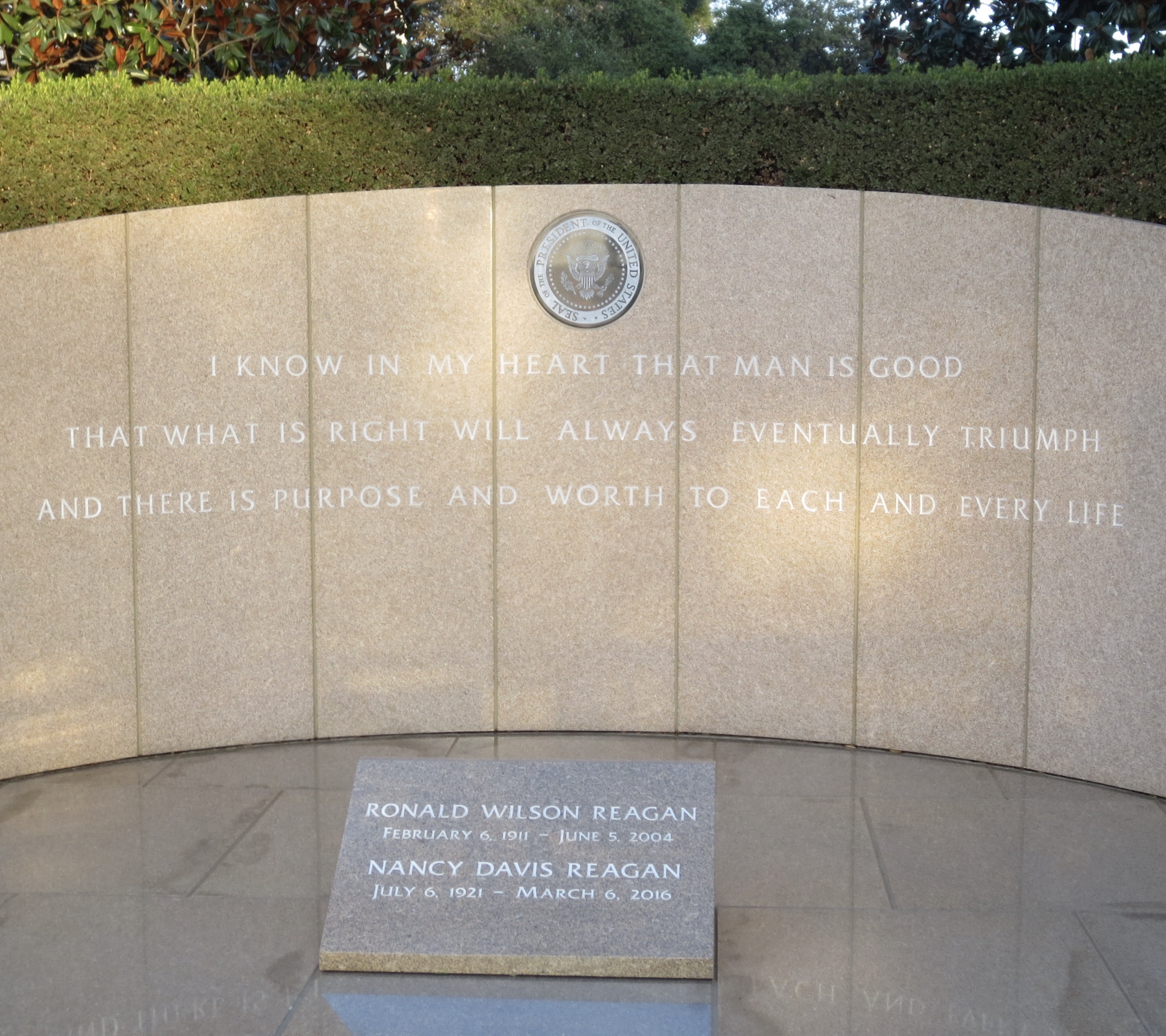
*Official portrait of President Reagan (source);
Reagan’s grave, Reagan Presidential Library (copyright A Home and a Country) -
The U.S. Enters World War I
One hundred and four years ago today, the United States entered World War I by declaring war on Germany. Below are excerpts from President Woodrow Wilson’s address to Congress on April 2nd, 1917:
“It is a war against all nations. American ships have been sunk, American lives taken, in ways which it has stirred us very deeply to learn of, but the ships and people of other neutral and friendly nations have been sunk and overwhelmed in the waters in the same way. There has been no discrimination. The challenge is to all mankind. Each nation must decide for itself how it will meet it. The choice we make for ourselves must be made with a moderation of counsel and a temperateness of judgment befitting our character and our motives as a nation. We must put excited feeling away. Our motive will not be revenge or the victorious assertion of the physical might of the nation, but only the vindication of right, of human right, of which we are only a single champion.
“. . . There is one choice we cannot make, we are incapable of making: we will not choose the path of submission and suffer the most sacred rights of our nation and our people to be ignored or violated. The wrongs against which we now array ourselves are no common wrongs; they cut to the very roots of human life.
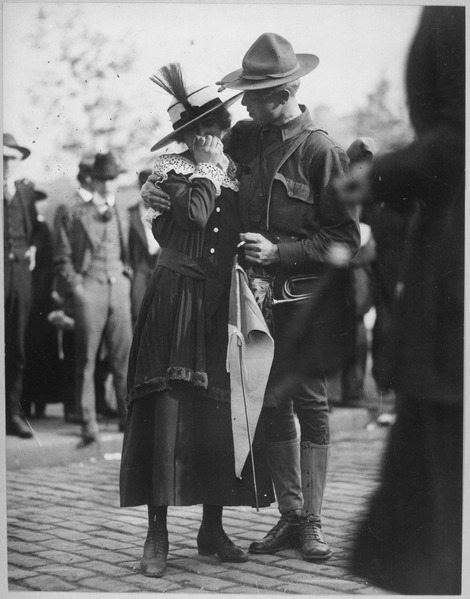
“. . . We are now about to accept gauge of battle with this natural foe to liberty and shall, if necessary, spend the whole force of the nation to check and nullify its pretensions and its power. . . . The world must be made safe for democracy. Its peace must be planted upon the tested foundations of political liberty. We have no selfish ends to serve. We desire no conquest, no dominion. We seek no indemnities for ourselves, no material compensation for the sacrifices we shall freely make. We are but one of the champions of the rights of mankind. We shall be satisfied when those rights have been made as secure as the faith and the freedom of nations can make them.
“It is a distressing and oppressive duty, Gentlemen of the Congress, which I have performed in thus addressing you. There are, it may be, many months of fiery trial and sacrifice ahead of us. It is a fearful thing to lead this great peaceful people into war, into the most terrible and disastrous of all wars, civilization itself seeming to be in the balance. But the right is more precious than peace, and we shall fight for the things which we have always carried nearest our hearts,—for democracy, for the right of those who submit to authority to have a voice in their own governments, for the rights and liberties of small nations, for a universal dominion of right by such a concert of free peoples as shall bring peace and safety to all nations and make the world itself at last free. To such a task we can dedicate our lives and our fortunes, everything that we are and everything that we have, with the pride of those who know that the day has come when America is privileged to spend her blood and her might for the principles that gave her birth and happiness and the peace which she has treasured. God helping her, she can do no other.”
(Full address available here)
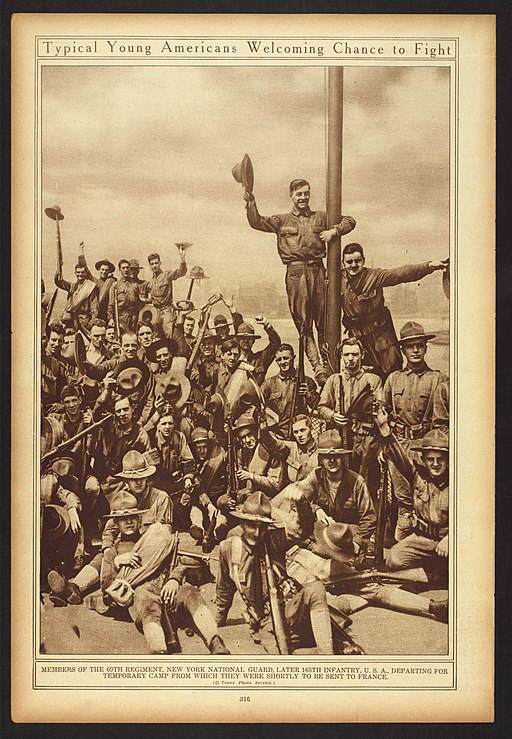
*President Woodrow Wilson addressing congress (source);
a soldier boy saying good-bye to his sweetheart (source);
young Americans welcoming the chance to fight (source) -
Death of Laura Ingalls Wilder
Laura Ingalls Wilder
February 7th, 1867 – February 10th, 1957“The ‘Little House’ books are stories of long ago. Today our way of living and our schools are much different; so many things have made living and learning easier. But the real things haven’t changed. It is still best to be honest and truthful; to make the most of what we have; to be happy with the simple pleasures and to be cheerful and have courage when things go wrong. Great improvements in living have been made because every American has always been free to pursue his happiness, and so long as Americans are free they will continue to make our country ever more wonderful.”
– Excerpt from Laura’s “Letter to Children”, 1950s
*Photograph of Laura Ingalls Wilder, circa 1885 (source);
letter available here -
The Four Chaplains
In early 1943, during World War II, the US troopship SS Dorchester was underway to Greenland. On board were four United States Army Chaplains, each holding to a separate creed: George L. Fox had been ordained in the Methodist church, Clark V. Poling in the Reformed Church in America; Alexander D. Goode was a Jewish rabbi, John P. Washington a Catholic priest. They put their differences aside, however, on the fateful morning of February 3rd, when the Dorchester was torpedoed by a German U-boat. Amidst chaos and confusion, the chaplains calmed and encouraged the other men on board, assisted the injured, and helped whom they could into life boats. In time it became apparent that there were not enough life vests for all 902 men on board, so the four chaplains selflessly offered up their own. The fact that they were willing to do so for any man, regardless of his religious profession, greatly impacted survivor John Ladd, who said afterwards, “It was the finest thing I have seen or hope to see this side of heaven.” When there was no more the chaplains could do to help, they linked arms; singing and praying, Fox, Goode, Poling, and Washington met their death with 668 other men in the frigid waters of the North Atlantic.
Other survivors later recalled:
“I could hear men crying, pleading, praying. I could also hear the chaplains preaching courage. Their voices were the only thing that kept me going.” – William B. Bednar
“As I swam away from the ship, I looked back. The flares had lighted everything. The bow came up high and she slid under. The last thing I saw, the Four Chaplains were up there praying for the safety of the men. They had done everything they could. I did not see them again. They themselves did not have a chance without their life jackets.” – Grady Clark
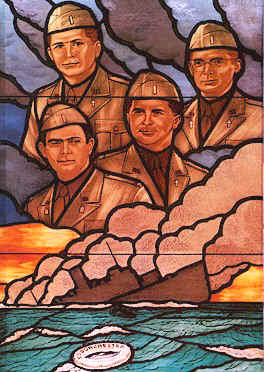
*Sources for photographs of the Chaplains: Fox, Poling, Goode, Washington;
survivor accounts taken from Wikipedia and the Four Chaplains Memorial Foundation;
stained glass window at the U.S. Pentagon (source) -
Death of George Washington
George Washington
February 22, 1732 – December 14, 1799“To him the title of Excellency is applied with peculiar propriety. He is the best: and the greatest man the world ever knew. In private life, he wins the hearts and wears the love of all who are so happy as to fall within the circle of his acquaintance. In his public character, he commands universal respect and admiration. Conscious that the principles on which he acts are indeed founded in virtue and truth, he steadily pursues the arduous work with a mind neither depressed by disappointment and difficulties, nor elated with temporary success. He retreats like a General and attacks like a Hero. If there are spots in his character, they are like the spots in the Sun; only discernable by the magnifying powers of a telescope. Had he lived in the days of idolatry he had been worshipped as a God. One age cannot do justice to his merit; but the united voices of a grateful posterity shall pay a chearful tribute of undissembled praise to the great assertor of their country’s freedom.”
– Francis Hopkinson about George Washington,
from “The Political Catechism” (1777)*Portrait of George Washington by Gilbert Stuart, 1796 (source)
-
Attack on Pearl Harbor
Seventy-nine years ago today, the early morning calm of Sunday, December 7th, 1941 was soon turned into a scene of chaos and destruction. Smoke filled the air as Japanese planes rained down bombs and torpedoes from the sky; midget submarines were launched in the waters below, although few reached their target. While the United States had remained neutral as Hitler, Mussolini, and others competed for global dominance in the years following World War I, the attack on Pearl Harbor made it evident that she could no longer continue as an inactive spectator. The fight had been brought to America’s doorstep that day with 2,403 sailors, soldiers, airmen, Marines, and civilians killed, and another 1,178 wounded.
Monday, December 8th, President Franklin D. Roosevelt addressed Congress and the nation. The United States was about to join the rest of the world in war.
“Mr. Vice President, Mr. Speaker, Members of the Senate, and of the House of Representatives:
Yesterday, December 7th, 1941—a date which will live in infamy—the United States of America was suddenly and deliberately attacked by naval and air forces of the Empire of Japan.
The United States was at peace with that nation and, at the solicitation of Japan, was still in conversation with its government and its emperor looking toward the maintenance of peace in the Pacific.
Indeed, one hour after Japanese air squadrons had commenced bombing in the American island of Oahu, the Japanese ambassador to the United States and his colleague delivered to our Secretary of State a formal reply to a recent American message. And while this reply stated that it seemed useless to continue the existing diplomatic negotiations, it contained no threat or hint of war or of armed attack.
It will be recorded that the distance of Hawaii from Japan makes it obvious that the attack was deliberately planned many days or even weeks ago. During the intervening time, the Japanese government has deliberately sought to deceive the United States by false statements and expressions of hope for continued peace.
The attack yesterday on the Hawaiian islands has caused severe damage to American naval and military forces. I regret to tell you that very many American lives have been lost. In addition, American ships have been reported torpedoed on the high seas between San Francisco and Honolulu.
Yesterday, the Japanese government also launched an attack against Malaya.
Last night, Japanese forces attacked Hong Kong.
Last night, Japanese forces attacked Guam.
Last night, Japanese forces attacked the Philippine Islands.
Last night, the Japanese attacked Wake Island.
And this morning, the Japanese attacked Midway Island.Japan has, therefore, undertaken a surprise offensive extending throughout the Pacific area. The facts of yesterday and today speak for themselves. The people of the United States have already formed their opinions and well understand the implications to the very life and safety of our nation.
As Commander in Chief of the Army and Navy, I have directed that all measures be taken for our defense. But always will our whole nation remember the character of the onslaught against us.
No matter how long it may take us to overcome this premeditated invasion, the American people in their righteous might will win through to absolute victory.
I believe that I interpret the will of the Congress and of the people when I assert that we will not only defend ourselves to the uttermost, but will make it very certain that this form of treachery shall never again endanger us.
Hostilities exist. There is no blinking at the fact that our people, our territory, and our interests are in grave danger.
With confidence in our armed forces, with the unbounding determination of our people, we will gain the inevitable triumph—so help us God.
I ask that the Congress declare that since the unprovoked and dastardly attack by Japan on Sunday, December 7th, 1941, a state of war has existed between the United States and the Japanese empire.”
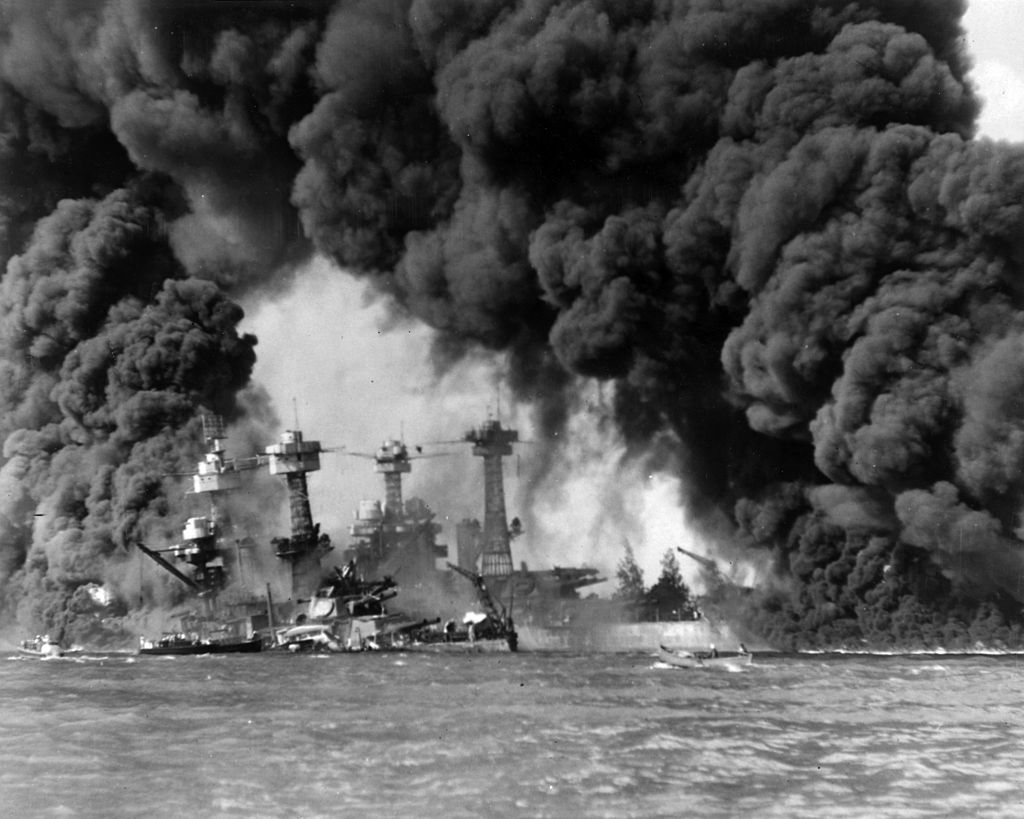
*Distant view of the attack (source);
the USS West Virginia and USS Tennessee shrouded in smoke (source) -
Death of John Witherspoon
John Knox Witherspoon
February 5th, 1723 – November 15th, 1794Scottish Presbyterian minister
Sixth president of Princeton University, 1768-1794
New Jersey delegate to the Second Continental Congress
Signer of the Declaration of Independence and the Articles of Confederation“Upon the whole, I beseech you to make a wise improvement of the present threatening aspect of public affairs, and to remember that your duty to God, to your country, to your families, and to yourselves, is the same. True religion is nothing else but an inward temper and outward conduct suited to your state and circumstances in providence at any time. And as peace with God and conformity to him, adds to the sweetness of created comforts while we possess them, so in times of difficulty and trial, it is in the man of piety and inward principle, that we may expect to find the uncorrupted patriot, the useful citizen, and the invincible soldier. God grant that in America true religion and civil liberty may be inseparable, and that the unjust attempts to destroy the one, may in the issue tend to the support and establishment of both.”
– Excerpt from Witherspoon’s 1776 sermon,
“The Dominion of Providence Over the Passions of Men”
